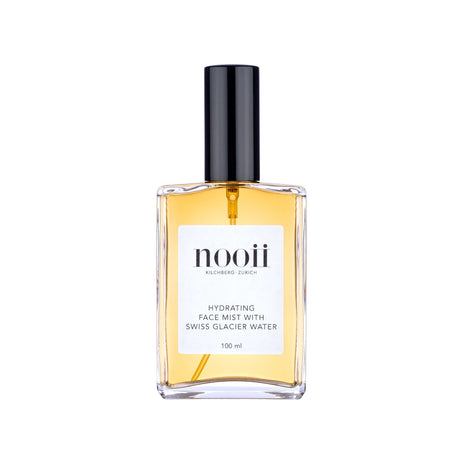Natural, vegan, clean, organic – what’s the difference?
When it comes to caring for our skin, we all want the best products to give us a healthy, glowing complexion. However, with so many different names and terms used in the skincare industry, it can be confusing to know what each term means and how they differ from one another. In this blog post, we'll break down the differences between natural, organic, vegan, and pure skincare products so you can make an informed decision when it comes to choosing the right products for your skin.
Naturally
Natural skin care products are made with ingredients derived from nature. However, this term is often overused in skin care. The best way to know exactly what's in the formula is to look at the ingredients list. However, what often goes unmentioned is that herbicides, pesticides, fungicides, or antibiotics are used to grow these plant-based ingredients, which then ultimately end up in the finished skin care product.
The Soil Association's Cosmos Natural logo or the Natrue Natural logo guarantees that the products do not contain genetically modified ingredients, controversial chemicals, parabens, phthalates, synthetic colors, dyes or fragrances.
Vegan
The quickest way to verify that a product is vegan is to look for the Vegan Society logo. This certifies that the products do not contain any animal extracts or animal by-products in their ingredients or during the manufacturing process. Furthermore, the products and ingredients have never been tested on animals.
Another logo to look for to ensure your products are cruelty-free is the Leaping Bunny logo. It's the only internationally recognized symbol that guarantees that no animal testing was conducted in the product's development. It's worth noting that a product labeled "vegan" doesn't necessarily mean that plant-based substitutes are used instead of animal-derived ingredients; they may also be synthetic, lab-created ingredients.
Some common cosmetic ingredients derived from animal sources include glycerin, collagen, gelatin, and retinol. The Vegan Society also recommends avoiding the ingredients pearl, silk, snail gel, milk protein, cochineal (E120), tallow, and lanolin unless labeled as synthetically produced.
Clean
Today, there's industry consensus that "clean" refers to products that favor natural ingredients but often contain synthetics. In other words, "clean" doesn't necessarily mean "chemical-free," which is the difference between brands that claim to be "natural." Natural can be clean, but clean isn't always natural; it's just free of certain problematic, man-made ingredients—like parabens and formaldehyde-releasing substances. But brands and retailers don't always agree on which ingredients are problematic.
Clean beauty is a relatively new concept and is not yet regulated, so it's important to educate yourself about and understand the ingredients in each product.
Organic
Organic skincare is safe for our planet. Organic farming avoids environmentally harmful chemicals that can harm the health of farmworkers, local people, and wildlife. Some toxins can contaminate soil and water for years, increasing the risk of exposure for years to come. Second, it's safe for your well-being. Using certified organic skincare products is comparable to eating a freshly prepared, balanced, and nutritious meal instead of fast food. Third, it's safe for the future.
Organic standards prohibit genetically modified and nano ingredients, whose full impact on the environment (now and in the future) is unknown.
The Soil Association's Cosmos Organic logo or the Natrue Organic logo guarantees that the products do not contain genetically modified ingredients, controversial chemicals, parabens, phthalates, synthetic colors, dyes or fragrances and are grown without the use of synthetic pesticides, herbicides and fertilizers.
In summary, when choosing skincare products, it's important to consider your individual needs and preferences, as well as the ingredients and certifications of the products you're considering. This will ensure you're using products that are safe, effective, and consistent with your values.























